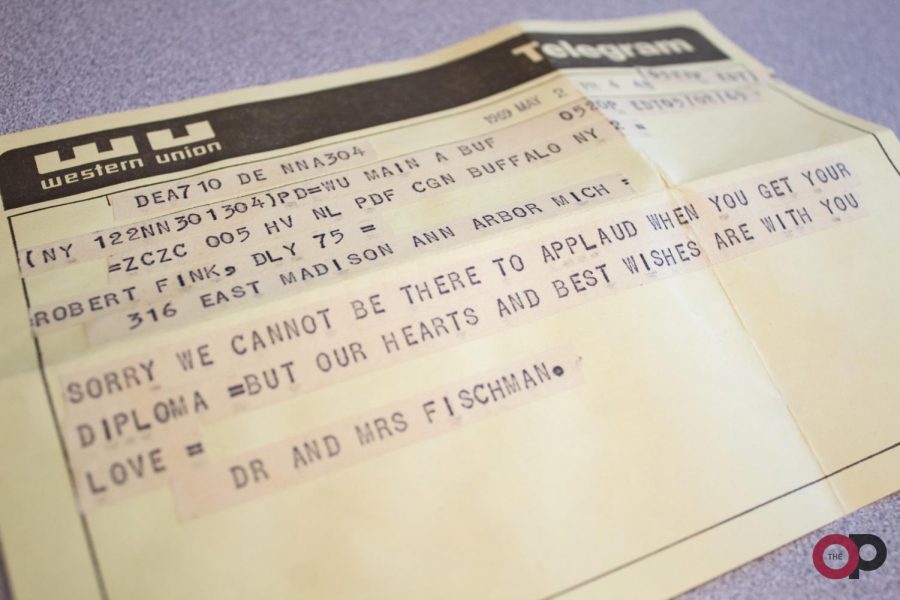Professor receives telegram 50 years late
In his final year at Oakland University, Robert Fink received a message from half a century ago.
Fink, a professor in the Department of Counseling and clinical psychologist, received a telegram on Jan. 2. The message was sent on May 2, 1969, one day after Fink moved out of Ann Arbor according to the Washington Post column by John Kelly.
Fink’s telegram reads: “Sorry we cannot be there to applaud when you get your diploma, but our hearts and best wishes are with you. Love, Dr. and Mrs. Fischman.”
“The Fischmans were the parents of a childhood friend of mine, and they were casual friends of my parents,” Fink said. “We lived in the same neighborhood in Buffalo, New York, through my sophomore year in high school. And then the Fischmans moved out to the suburbs, and while I still was friendly with their son Arnie, I did not have the same level of contact with them after that.”
To Fink, the fact that they even sent the telegram was a surprise.
“It is not like [the Fischmans] were real close friends of my family or that Arnie and I were still the closest of friends,” Fink said.
According to Sam Srauy, assistant professor of communication, the telegram was quite impractical by the late ’60s.
“By the 1960s, telephones had reached saturation,” Srauy said. “They were in most people’s homes, you would see them out as payphones.”
This proliferation of phones makes it hard for Srauy to see why someone would want to use a telegram once telephones became popular. Fink, however, has an idea why.
“Telegrams were an important kind of communication then,” Fink said. “Partly because there was no internet, but also because long distance phone calls were quite expensive. Unlike now where you pay a flat fee for your phone service and can make unlimited calls… then, you paid by the minute for a long distance phone call—it was an extra charge.”
Though telegrams were not cheap either, this particular telegram is the only one Fink knows about being sent to his family.
“To send a telegram took some effort,” Fink said. “Most people when they sent a telegram had to go to a Western Union office.”
A telegram would have also made sense for the Fischmans because of how relatively fast telegrams were—or at least were supposed to be.
“Obviously I do not know what was exactly in their minds,” Fink said, “but right around May 1 and 2, they wanted to communicate with me and may have been aware at this point I had actually graduated.”
Fink has been in academia for 45 years now, going from his original bachelor’s in history and literature to a Ph.D in psychology. But months away from retirement from the field, a connection to the happy days of graduation came into his life.
As for the Fischmans, who are now deceased, Fink has some delayed thanks to give.
“I was very touched that they had thought about me and thought about my graduation as an achievement,” he said. “I regret that I did not know while Dr. and Mrs. Fischman were still alive so I could have told them I was appreciative.”
Fink is currently trying to get in contact with Arnie Fischman, hoping to share the story of the telegram with him.




